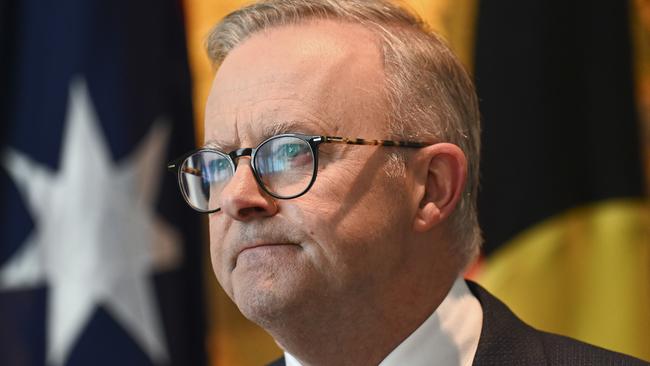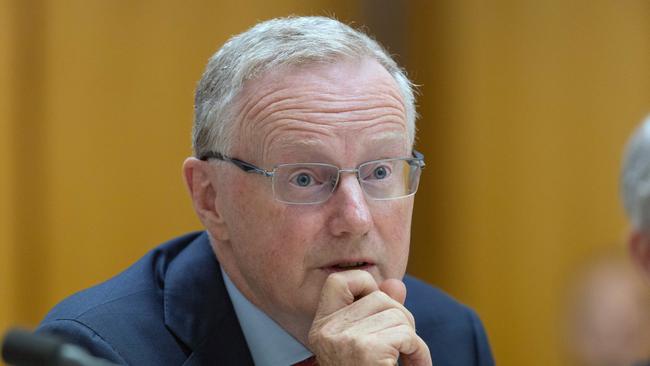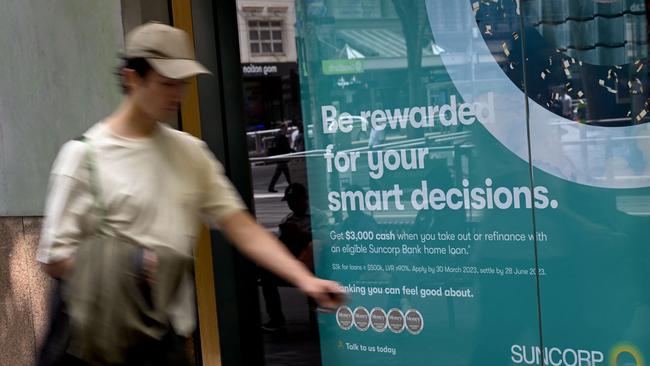
Along with others, I have been a critic of Lowe’s mistakes. But he is not the only one who led us into the inflationary trap and trying to solve the inflationary problem merely using the weapon at Lowe’s disposal — interest rates — is, of course, set to be painful to significant parts of the Australian community.
In the parliamentary hearings, politicians demanded Lowe reduce rates to stop the pain, but that is simply not an option while inflation is so high.
If the politicians of all persuasions want rates to fall then they must first admit their collective actions were a big contributor to inflation and only by reversing those actions and slashing government expenditure will the burden be taken off interest rates.
That’s not going to happen because most politicians don’t think that way. They are not prepared to risk electorate unpopularity by embracing dramatic spending cuts, so the burden of inflation reduction rests almost solely with Philip Lowe’s interest rates.
Let us go back into what caused inflation to break out after being dormant for years. In a word, it was Covid-19.
Back in March/April 2020 there was deep fear that Covid-19 would bring on a very severe global recession causing serious unemployment. It was all hands to the wheel.
The RBA slashed interest rates to token levels and the government went on an unprecedented spending spree, led by JobKeeper and other big items. The banks trashed the banking royal commission recommendations and sprayed loans at the housing market. At the same time, Australians stopped travelling, which boosted their savings. By June 2020 in many areas, like expenditure on dwellings, the economy was beginning to roll and still the interest rate, bank lending and government spending simulations kept coming.
Philip Lowe made his foolish prediction that interest rates would stay low until 2024 and RBA economists, isolated in their Martin Place statistical junkyard, did not go into the real world to discover that the economy was racing ahead at a fast pace, creating supply and labour shortages which inevitably would trigger a strong inflationary thrust.

Had the RBA people been on the ground around Australia, they would have lifted interest rates much earlier. But politicians and banks were no better and continued to spray money into the community despite goods and labour supply shortages.
Now the RBA is trying to reverse the inflationary thrust, but whereas the politicians were happy to spend, they will not reverse the process in a substantial way.
It’s true that thanks to mining and farm revenues, Australia will record a surprise surplus in the year ended June 30, 2023, which will enable Treasurer Jim Chalmers to claim that he is doing his part in lowering inflation. But surpluses created by higher commodity prices don’t greatly impact the biggest causes of inflation: a shortage of labour and materials. Costs are still rising. The current government is actually fuelling inflation by trying to boost wages and continuing huge spending programs boosted by the actions of states and local governments.
If federal and state governments were to cut back their spending sprees, it would relieve a burden on interest rates. But that means politicians will have to share the blame.
It’s more politically convenient to solely blame the Reserve Bank Governor.

The failure of the politicians to embrace their share of inflation reduction measures is creating strange contrasts in the total community
In January, the Roy Morgan Business Confidence index rose 10.4 points to 106.4 — the largest jump to start a new year since the index began in 2010. Some 49 per cent of businesses expect “good times” for the Australian economy over the next year and say it will be a good time to invest. An equal number have the opposite view, but this is an environment where prices will continue to rise. The biggest business problem is not consumer demand, but continued shortages of supply and labour, albeit improved.
In sharp contrast, the ANZ-Roy Morgan Consumer Confidence fell 5.5 points to 78.1 in the week to February 12, after the RBA increased official interest rates. Consumer confidence is now a massive 25 per cent points below the same week a year ago and only 19 per cent of Australians say their families are “better off” financially than this time last year — the lowest figure for this indicator since April 2020, when Covid-19 fears were at their peak.
The contrast between consumers and business reflects the fact that the interest rate impact is initially confined to the mortgage belt, but it will spread. While inflation may be reduced by higher interest rates, it will be hard to keep it down and the target of 2-3 per cent inflation may require Draconian action in a high government spending and wage boost era. Being able to solely blame Philip Lowe is political heaven.






During the parliamentary interrogation of Reserve Bank governor Philip Lowe, the politicians in Canberra showed they have little understanding both of what has happened in Australia’s recent past and what is happening now.